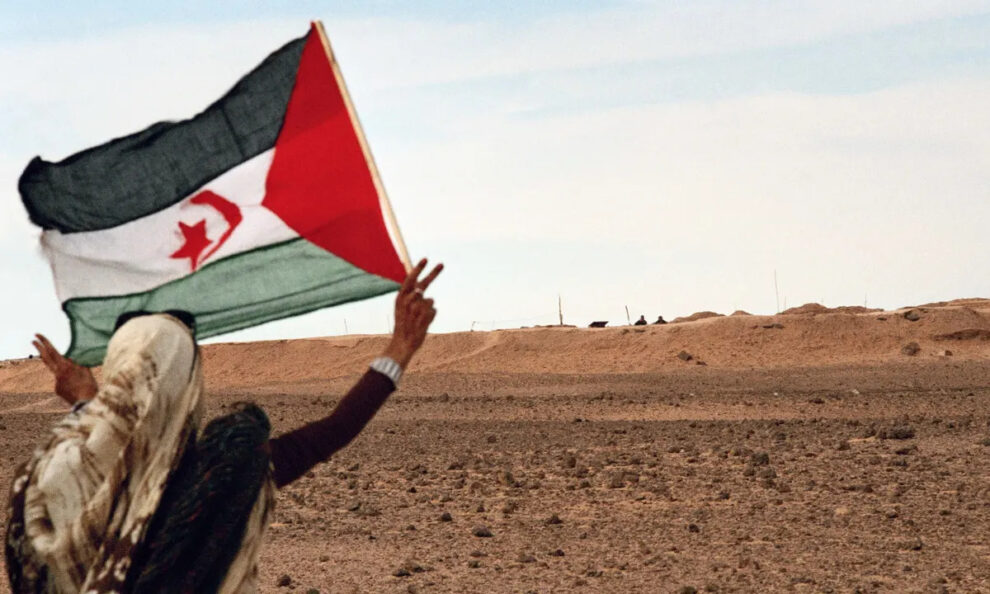Rabat – Algeria’s regime is still in denial on the Sahara dispute, appearing to hope that its unrelenting rejection of the US’ unchanged support for Morocco’s sovereignty over Western Sahara will at some point convince the Biden administration to backtrack on America’s newfound embrace of the Moroccan Autonomy Plan as the best way out of the long-standing Western Sahara stalemate.
Algeria’s Foreign Affairs Minister Ahmed Attaf made new remarks alleging that the Biden administration has in fact been “explicitly distancing” itself from Donald Trump’s proclamation recognizing Morocco’s sovereignty over the disputed region.
Since the US first announced its unequivocal embrace of the Moroccan Autonomy Plan for the Sahara in December 2020, the Algerian regime has unrelentingly lobbied to get the Biden administration to reverse its predecessor’s proclamation in support of Morocco’s territorial integrity.
Attaf’s latest comments on the Sahara question, which he made in an interview published by Al-Monitor on August 9, are a perfect illustration of Algeria’s persistence in casting doubt on the otherwise clear and unambiguous US support for the Moroccan stance on the Sahara dispute.
In particular, Attaf misleadingly claimed in the interview that Biden has not “endorsed the Trump decision.” Meanwhile, Al Monitor suggested that even though the Biden white House has chosen “not to rescind former President Donald Trump’s recognition of Moroccan sovereignty,” it has subtly sought a more neutral approach to “stake out at a middle ground.”
As a number of observers have argued, however, the Biden White House’s neutral-sounding approach to the Western Sahara question is in fact a more diplomatic, gradualist attempt to implement the previous administration’s Sahara policy without alienating the separatist Polisario Front and Algeria.
Yet Algeria has been eager to falsely describe the Biden White House’s delicate balancing act as proof that the current US administration is not committed to implementing its predecessor’s policy regarding the Sahara dispute.
Attaf suggested as much in his Al-Monitor interview. Disregarding both the proclamation published by the State Department and repeated statements from US officials in recent months, the top Algerian diplomat claimed that the US statement following his meeting with Secretary Antony Bliken does not mean that the US recognizes Morocco’s sovereignty over the region.
“That means that you do not recognize that the territory is Moroccan. If you recognize it, you would not ask for an additional endeavor to find the solution,” he claimed.
The remarks came just a month after the US State Department Spokesperson Matthew Miller reiterated his country’s firm position supporting Morocco’s territorial integrity.
“I would say that the policy was announced in December of 2020; it has not changed. Will say at the same time we fully support the UN Personal Envoy of the Secretary-General Staffan de Mistura as he intensifies efforts to achieve an enduring and dignified political solution for Western Sahara,” the US spokesperson stressed.
An “independent Sahrawi state is not a realistic option for resolving the conflict,” the US had stressed in its December 2020 proclamation on the Sahara, noting that a genuine autonomy under Moroccan sovereignty is the only feasible solution” to end the dispute.
Miller’s suggestion that this policy “has not changed” means the Biden White House still supports Morocco’s Autonomy Plan as the only serious and credible basis to end the dispute over the Sahara.
The proclamation also calls on all parties to the dispute to engage in discussions “without delay, using Morocco’s autonomy plan as the only framework to negotiate a mutually acceptable solution,” stressing America’s commitment to encourage economic and social development in Morocco, including its southern provinces.
The US also recently debunked Attaf’s ministry’s recent claims on the US position on the decades-long dispute over the Western Sahara region.
Following a recent meeting between Attaf and US Secretary Antony Blinken, the Algerian Ministry of Foreign Affairs claimed that the two officials had ended their discussion of the Sahara dispute by “reiterating the support for the efforts of the Personal Envoy of the Secretary general of the United Nations, Mr. Staffan de Mistura, aimed at enabling the two parties to con the conflict to engage seriously and without preconditions in the UN-led political process.”
To Algiers’ dismay, however, the US State Department immediately disputed the Algerian ministry’s readout of the Attaf-Blinken encounter by stressing that the two parties agreed in terms of reiterating support for the personal envoy as he “consults intensively with all concerned [parties] to achieve a political solution for Western Sahara.”
Source: Marroco World News
















